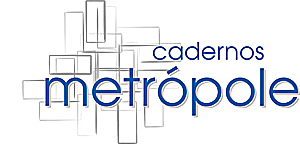Resumo em Português:
Resumo Este artigo apresenta as relações complexas entre processos sociais e espaços materiais no bairro Floresta, inseridos no histórico das transformações socioeconômicas ocorridas no 4º Distrito de Porto Alegre. Elas são materializadas por diferentes elementos, desde o processo de sua industrialização, esvaziamento e reapropriação. Assim, são construídos ambientes urbanos, conforme os usos organizados pelos atores sociais em territorialidades, pertencentes às três fronteiras urbanas que constroem esse espaço de contrastes. A metodologia aplicada foi qualitativa, de estudo explanatório, incluindo técnicas como caminhadas, o uso de registros fotográficos e de registros escritos. A partir dessa abordagem, foram identificadas tipificações dos espaços físicos e de seus usos, que expressam, de maneira segmentada, as vivências e os encontros em diferentes combinações de vínculos, memórias e conflitos.
Resumo em Inglês:
Abstract The article presents the complex relationships between social processes and material spaces in the Floresta neighborhood, included in the history of socioeconomic changes that occurred in the 4th District of Porto Alegre. They have been materialized by different elements, since the process of their industrialization, emptying and reappropriation. Thus, urban environments are built according to the uses organized by social actors in territorialities, belonging to the three urban borders that constitute this space of contrasts. The qualitative methodology of explanatory research was applied, including techniques such as walking and the use of photographic and written records. With this approach, typifications of physical spaces and their uses were identified, expressing, in a segmented way, experiences and encounters in different combinations of bonds, memories and conflicts.
